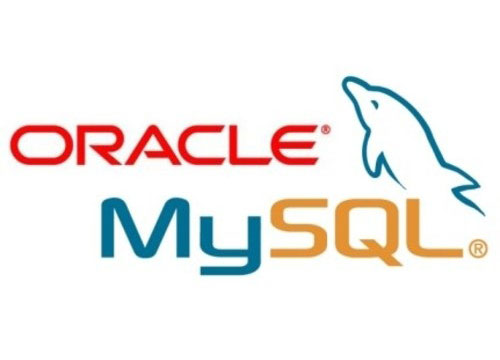10 recommended courses on pattern definition
mysql SQL Server Mode MySQL server can operate in different SQL modes, and different modes can be applied to different clients. This way each application can customize the server's operating mode according to its own needs. The schema defines which SQL syntax MySQL should support, and what kind of data validation checks should be performed. This makes it easier to use MySQL in different environments and with other database servers. You can set the default SQL mode by starting mysqld with the --sql-mode="modes" option. This value can also be left empty (--sql-mode = "") if you want to reset it. You can also change the SQL mode by setting the sql_mode variable after startup using the SET [SESSION|GLOBAL] sql_mode='modes' statement. Setting a GLOBAL variable requires SUPER permission and affects the operation of all clients connected from that point on. Setting the SESSION variable only affects the current client. Any customer
1. A brief introduction to the SQL server mode of Mysql

Introduction: mysql SQL server mode MySQL server can operate in different SQL modes, and different modes can be applied to different clients. This way each application can customize the server's operating mode according to its own needs. The schema defines which SQL syntax MySQL should support, and what kind of data validation checks should be performed. This makes it easier to use MySQL in different environments and combine it with other databases
2. Example code sharing of PHP template method pattern

Introduction: Template Method Pattern: The template method pattern defines the steps of an algorithm and allows subclasses to provide implementations for one or more steps. . Template method pattern: Define the skeleton of an algorithm in a method and defer some steps to subclasses. The template method allows subclasses to redefine certain steps in the algorithm without changing the algorithm structure.
3. Schema definition XSD in XML programming Detailed explanation of sample code

Introduction: This article mainly introduces the detailed explanation of schema definition XSD in XML programming. It explains how to declare patterns and define types in XML documents. Friends in need can refer to
4. C++ Design Patterns A Brief Understanding of Appearance Patterns

Introduction: Facade: Provides a consistent interface for a set of interfaces in a subsystem. This mode defines A high-level interface is provided that makes this subsystem easier to use.
5. PHP Design Pattern Strategy Pattern

##Introduction: The strategy pattern defines a family of algorithms and encapsulates them separately so that they can be replaced with each other. This model allows the algorithm to change independently of the customers using it.
6. DataTemplate php design pattern Template template pattern
Introduction: DataTemplate:DataTemplate php design pattern Template template pattern : Due to its own shortcomings, inheritance relationships have been labeled as "evil" by experts. "Use delegation relationships instead of inheritance relationships", "try to use interface implementation instead of abstract class inheritance" and other expert warnings, let us rookies "look at inheritance in a different light". In fact, inheritance still has many advantages of its own. It’s just that the shortcomings of being abused by everyone seem to be more obvious. Reasonable use of inheritance relationships can still play a good role in your system design. The template method pattern is one of the usage examples. GOF defines a for the Template Method pattern.
7. headfirst design pattern php design pattern Facade appearance pattern

## Introduction: headfirst design pattern: headfirst design pattern php design pattern Facade appearance pattern: Pattern definition: Facade pattern (Facade Pattern): External communication with a subsystem must be carried out through a unified appearance object, which is a set of interfaces in the subsystem Providing a consistent interface, the facade pattern defines a high-level interface that makes this subsystem easier to use. Appearance mode is also called facade mode, which is an object structure mode. Mode structure: The appearance mode is to allow the client to call a more complex system in a simple way to complete one thing. Subsystem: Copy the code as
8. Template method pattern is learned from the PHP design pattern book
Introduction:: Learn the template method pattern from the PHP design pattern book: What is the template method pattern? The function of this method is to sequence the abstract method sequence, and the specific implementation is left to the specific class. The key is that the template method pattern defines the "skeleton" of the algorithm in the operation, and When to use template methods is implemented by concrete classes. If some steps in the algorithm have been clarified, but these steps can be implemented in many different ways. Another usage may be to put the common behaviors of subclasses in a class to Avoid code duplication. You can also use the template method pattern to control subclass extension. This involves a "hook" operation. This principle refers to the operation of the parent class calling the subclass,
9. php design mode Facade (appearance mode)_PHP Tutorial

Introduction: PHP design mode Facade (appearance mode). Pattern definition: Facade Pattern: External communication with a subsystem must be conducted through a unified facade object to provide a consistent interface for a set of interfaces in the subsystem
10. Introduction to the Observer Pattern in PHP Design Patterns_PHP Tutorial
Introduction: Introduction to the Observer Pattern in PHP Design Patterns. Introduction The Observer pattern defines one-to-many dependencies of objects, so that when an object changes state, all its dependencies will be notified and automatically updated! Design Principles In the Observer Pattern
The above is the detailed content of 10 recommended courses on pattern definition. For more information, please follow other related articles on the PHP Chinese website!

Hot AI Tools

Undresser.AI Undress
AI-powered app for creating realistic nude photos

AI Clothes Remover
Online AI tool for removing clothes from photos.

Undress AI Tool
Undress images for free

Clothoff.io
AI clothes remover

Video Face Swap
Swap faces in any video effortlessly with our completely free AI face swap tool!

Hot Article

Hot Tools

Notepad++7.3.1
Easy-to-use and free code editor

SublimeText3 Chinese version
Chinese version, very easy to use

Zend Studio 13.0.1
Powerful PHP integrated development environment

Dreamweaver CS6
Visual web development tools

SublimeText3 Mac version
God-level code editing software (SublimeText3)

Hot Topics
 1657
1657
 14
14
 1415
1415
 52
52
 1309
1309
 25
25
 1257
1257
 29
29
 1229
1229
 24
24
 When might a full table scan be faster than using an index in MySQL?
Apr 09, 2025 am 12:05 AM
When might a full table scan be faster than using an index in MySQL?
Apr 09, 2025 am 12:05 AM
Full table scanning may be faster in MySQL than using indexes. Specific cases include: 1) the data volume is small; 2) when the query returns a large amount of data; 3) when the index column is not highly selective; 4) when the complex query. By analyzing query plans, optimizing indexes, avoiding over-index and regularly maintaining tables, you can make the best choices in practical applications.
 Can I install mysql on Windows 7
Apr 08, 2025 pm 03:21 PM
Can I install mysql on Windows 7
Apr 08, 2025 pm 03:21 PM
Yes, MySQL can be installed on Windows 7, and although Microsoft has stopped supporting Windows 7, MySQL is still compatible with it. However, the following points should be noted during the installation process: Download the MySQL installer for Windows. Select the appropriate version of MySQL (community or enterprise). Select the appropriate installation directory and character set during the installation process. Set the root user password and keep it properly. Connect to the database for testing. Note the compatibility and security issues on Windows 7, and it is recommended to upgrade to a supported operating system.
 MySQL: Simple Concepts for Easy Learning
Apr 10, 2025 am 09:29 AM
MySQL: Simple Concepts for Easy Learning
Apr 10, 2025 am 09:29 AM
MySQL is an open source relational database management system. 1) Create database and tables: Use the CREATEDATABASE and CREATETABLE commands. 2) Basic operations: INSERT, UPDATE, DELETE and SELECT. 3) Advanced operations: JOIN, subquery and transaction processing. 4) Debugging skills: Check syntax, data type and permissions. 5) Optimization suggestions: Use indexes, avoid SELECT* and use transactions.
 Can mysql and mariadb coexist
Apr 08, 2025 pm 02:27 PM
Can mysql and mariadb coexist
Apr 08, 2025 pm 02:27 PM
MySQL and MariaDB can coexist, but need to be configured with caution. The key is to allocate different port numbers and data directories to each database, and adjust parameters such as memory allocation and cache size. Connection pooling, application configuration, and version differences also need to be considered and need to be carefully tested and planned to avoid pitfalls. Running two databases simultaneously can cause performance problems in situations where resources are limited.
 RDS MySQL integration with Redshift zero ETL
Apr 08, 2025 pm 07:06 PM
RDS MySQL integration with Redshift zero ETL
Apr 08, 2025 pm 07:06 PM
Data Integration Simplification: AmazonRDSMySQL and Redshift's zero ETL integration Efficient data integration is at the heart of a data-driven organization. Traditional ETL (extract, convert, load) processes are complex and time-consuming, especially when integrating databases (such as AmazonRDSMySQL) with data warehouses (such as Redshift). However, AWS provides zero ETL integration solutions that have completely changed this situation, providing a simplified, near-real-time solution for data migration from RDSMySQL to Redshift. This article will dive into RDSMySQL zero ETL integration with Redshift, explaining how it works and the advantages it brings to data engineers and developers.
 The relationship between mysql user and database
Apr 08, 2025 pm 07:15 PM
The relationship between mysql user and database
Apr 08, 2025 pm 07:15 PM
In MySQL database, the relationship between the user and the database is defined by permissions and tables. The user has a username and password to access the database. Permissions are granted through the GRANT command, while the table is created by the CREATE TABLE command. To establish a relationship between a user and a database, you need to create a database, create a user, and then grant permissions.
 Laravel Eloquent ORM in Bangla partial model search)
Apr 08, 2025 pm 02:06 PM
Laravel Eloquent ORM in Bangla partial model search)
Apr 08, 2025 pm 02:06 PM
LaravelEloquent Model Retrieval: Easily obtaining database data EloquentORM provides a concise and easy-to-understand way to operate the database. This article will introduce various Eloquent model search techniques in detail to help you obtain data from the database efficiently. 1. Get all records. Use the all() method to get all records in the database table: useApp\Models\Post;$posts=Post::all(); This will return a collection. You can access data using foreach loop or other collection methods: foreach($postsas$post){echo$post->
 MySQL: The Ease of Data Management for Beginners
Apr 09, 2025 am 12:07 AM
MySQL: The Ease of Data Management for Beginners
Apr 09, 2025 am 12:07 AM
MySQL is suitable for beginners because it is simple to install, powerful and easy to manage data. 1. Simple installation and configuration, suitable for a variety of operating systems. 2. Support basic operations such as creating databases and tables, inserting, querying, updating and deleting data. 3. Provide advanced functions such as JOIN operations and subqueries. 4. Performance can be improved through indexing, query optimization and table partitioning. 5. Support backup, recovery and security measures to ensure data security and consistency.




